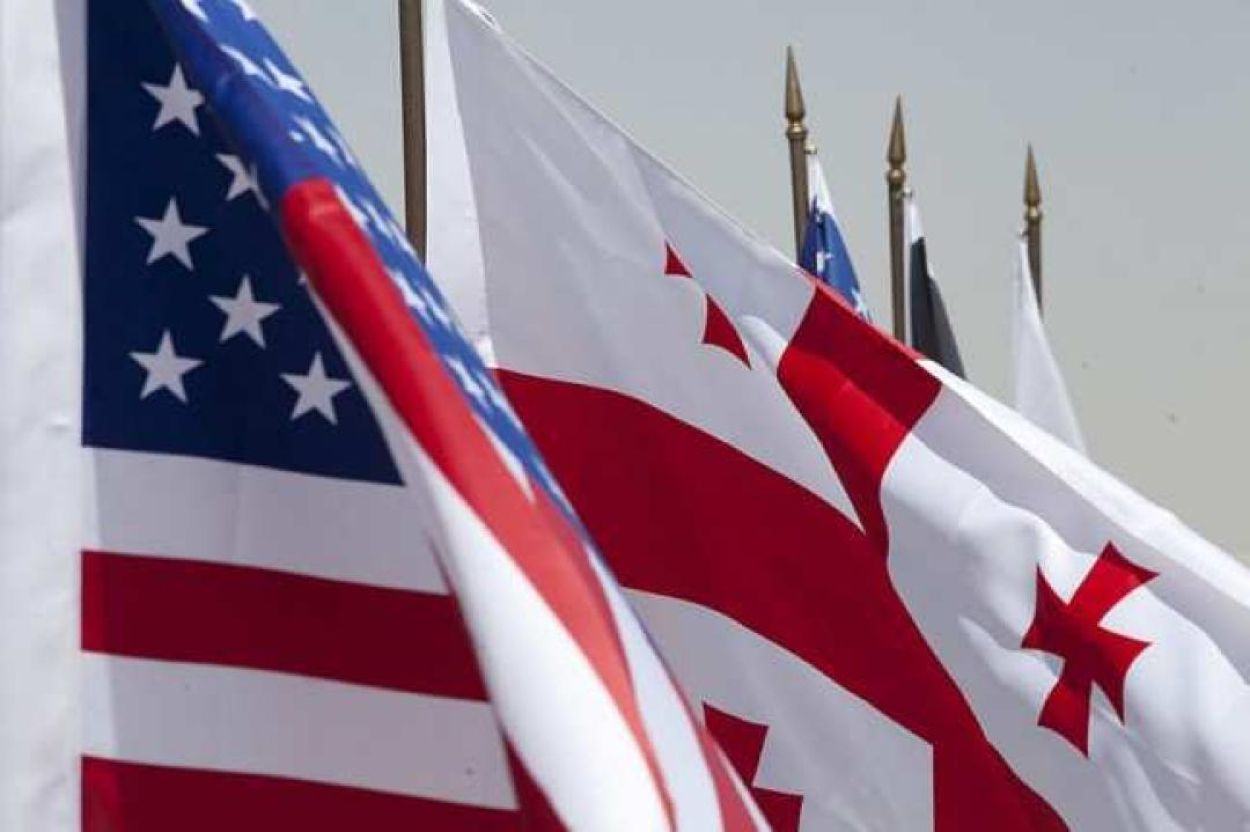The US state department has sanctioned Georgia’s High Court of Justice chairman and members for their involvement in significant corruption under an American provision for denying visas for their travel to the US.
In an official release on April 6, the US Embassy in Tbilisi said, “Today, the US Department of State is publicly designating Mikheil Chinchaladze, Lelvan Murusidze, Irakli Shengella, and Valerian Tsertsvadze under Section 7031 visa restriction authorities, due to their involvement in significant corruption.
“The individuals abused their positions as court Chairmen and members of Georgia’s High Council of Justice, undermining the rule of law and the public’s faith in Georgia’s judicial system.”
The statement added, “The United States continues to stand with all Georgians in support of democracy and the rule of law and will continue to promote accountability for those who abuse public power for personal gain. We stand with all judges with the integrity and courage to act impartially and independently.”
Consequent to the decision of the State Department, the officials designated, and their immediate family members are ineligible for entry into the United States. This is a harsh decision even if taken within US law’s ambit. The action infringes the UN Charter, which commits nations to the observance of non-interference in the internal affairs of other states.
The immediate inference one draws from the statement of the State Department is that the United States has taken over the Georgian judiciary. Read between the lines, and you will find the statement divides not only the judiciary but the entire Georgian civil society into two classes: pro and anti-America.
That is what the wording of the order suggests. All Georgians in support of democracy stand on one side, and the “abusers of public power for personal gain” on the other. Again “judges with integrity and courage” stand on one side and “corrupt judges” on the other.
Who has the authority to decide who is corrupt and who is honest?” Again, who decides who is on the side of democracy and who is the abuser of public power?
If the State Department depended on the input from its agencies on the performance of the judges and the expression of opinion by the public, where is the proof that these informers are all incorruptible and above board?
The power and authority to pass judgment on the judicial officers or vouch for the public’s opinion rests with the law and order maintaining apparatus of the Georgian government and not the State Department. Was a court of inquiry set up to verify the conduct of the designated judges?
Did the government of Georgia dismiss any adverse report against the alleged judges? None of this has happened.

One can easily conclude that the US has planted its moles in the Georgian society, given them a certain task to perform, and depends on the reports they submit favoring the American interests and befuddling all that hinders the deepening of American interests in Georgia.
“Washington has slapped sanctions on four Georgian judges in an unprecedented display of its frustration with the democratic stagnation in the nation once hailed as the poster child of Western-style reforms in the Caucasus. The move caps a year of increasingly cantankerous exchanges between Washington and Tbilisi,” wrote Eurasia Net on April 6.
The Georgian government reacted angrily to this statement of Blinken. The ruling party (Georgian Dream), hard-line chairman Irakli Kobakhidze told Imedi, a pro-government TV Channel, “I am afraid to make a harsh assessment of the statement (of Blinken).
Corrupt machinations stand behind this statement, and, as you know, corruption is not necessarily about money. The most disconcerting part is this statement tarnished the name of Secretary of State Blinken.” He also said Secretary Blinken’s information sources were crude and corrupt. He meant the American Ambassador to Georgia, Kelly Degnen.
The Georgian foreign ministry called the move “totally incomprehensible and unacceptable.” In an open letter to his counterpart, the Georgian foreign minister listed the government’s democratic accomplishments and leaned on the Georgian Dream’s usual strategy of claiming it corrected the wrongs of its predecessor. He also listed the wrong done by the preceding regime.
As the US Secretary of State has removed the lid of the can of worms, we want to go to the bottom of the story. European Union is a strategic ally of Georgia. It has also joined its voice with the US Secretary of State in castigating the Georgian judiciary and called it a stumbling block on Georgia’s path toward getting candidate status for membership in the bloc.
The Parliamentary Assembly of the Council of Europe (PACE) specifically focused on Georgia’s High Council of Justice, saying it remains saddled with many ills. The US Ambassador hinted that sanctions would nudge Georgia toward completing the EU-assigned homework.
Relations between Georgia and its big Western benefactors, the US and EU, have grown increasingly strained after the war in Ukraine began. Georgian government circles understand that the EU wants to drag Georgia into the Ukrainian war, but for various reasons, Georgia will not oblige them.
Therefore, the EU and the US exert pressure on the ruling party by adopting the divide-and-rule method. That is why the US, in its statement under discussion, is drawing a wedge in the Georgian judiciary and civil society.
The US and its Western allies seem to be trying to repeat the Ukrainian narrative. Let us hope the Georgian leadership learns a lesson from the tragic events in the Ukrainian war.
- KN Pandita (Padma Shri) is the former Director of the Center of Central Asian Studies at Kashmir University. Views expressed here are of the author’s.
- Mail EurAsian Times at etdesk(at)eurasiantimes.com
- Follow EurAsian Times on Google News